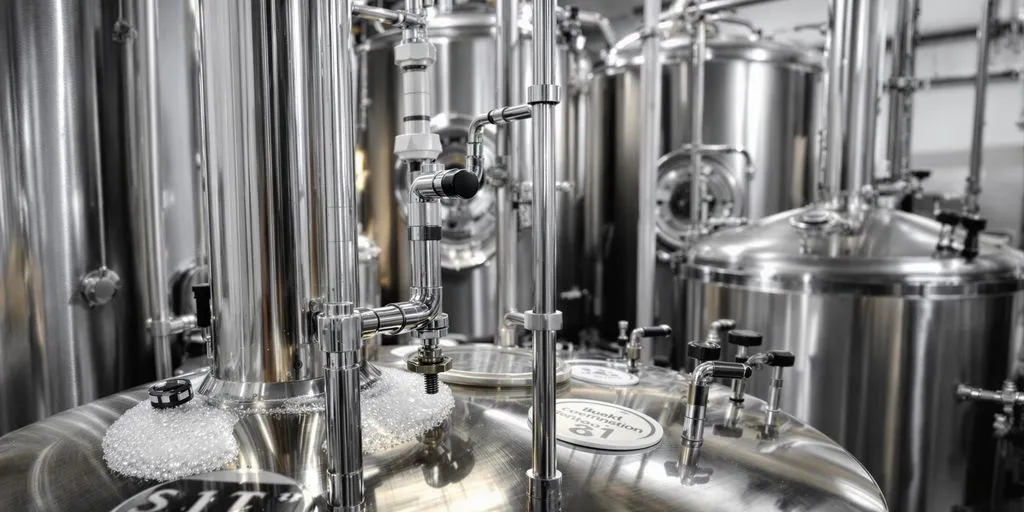Imagine creating a perfect batch of beer right in your own space, using high quality brewing equipment designed for both novices and seasoned craft brewers. That is the dream of many brew enthusiasts today. This article aims to help you discover how to best make that dream a reality. By examining the essential tools and processes involved—everything from choosing the right brew kettle and fermenter to mapping out an entire brewing system—you’ll be well on your way to serving the tastiest beer at a time to friends or customers. This guide is worth reading because it provides a structured approach, practical tips, and real-world examples, maximizing both efficiency and flavor in any brew you decide to create.Below, we have outlined a clear and comprehensive roadmap for carefully planning each stage, whether you’re a home brew hobbyist or aspire to launch a professional brewery. Get ready to dive in, gather your brewing supplies, and transform your brewing process into a quality beer–generating pipeline. Let’s go!
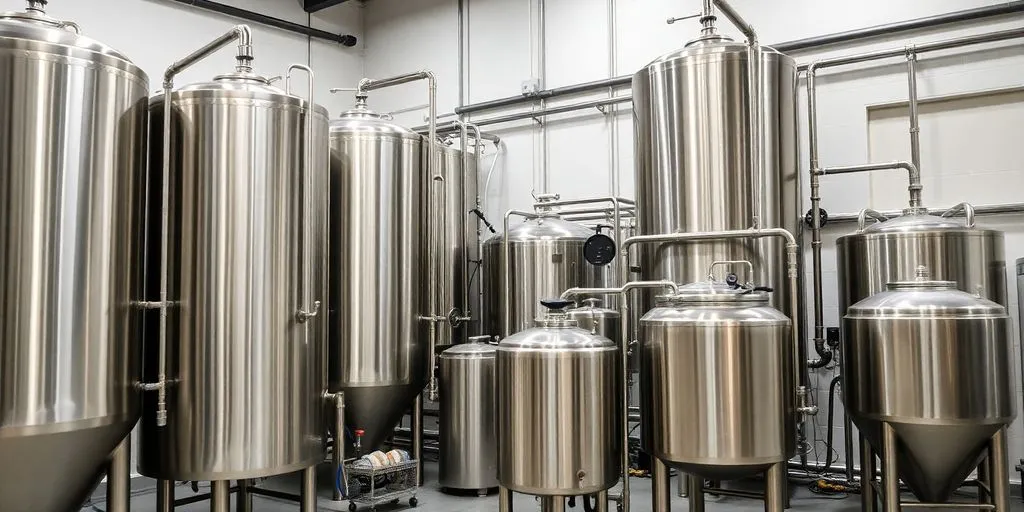
1. Why Should You Brew Your Own Beer?
When you decide to brew your own beer, you step into a fascinating world of chemistry, flavor experimentation, and personal satisfaction. From controlling the bitterness level to exploring unique malt combinations, homebrew or craft brewing can be incredibly rewarding.
A Unique Taste and Experience
• Brewing beer at home grants you absolute control over the ingredients and the entire brewing process. You decide on the type of yeast, the ratio of malts, or the style of hops. This range of choices is not always feasible with store-bought beer.
• Experimentation fosters creativity while refining your palate. As you attempt new recipes, you’ll grow adept at distinguishing subtle flavor profiles—improving your brewing skills.
A More Personal Connection
• It’s not just about the final product, but also the journey. Brewing your own beer can become a ritual, from sanitizing the bucket to measuring the perfect grain base.
• Sharing your homemade beer with close friends or local craft enthusiasts fosters community and pride in your accomplishments.
“Starting my first batch of beer from scratch was the highlight of my year. I quickly discovered that the right fitting and a quality brew kettle could make or break the result.” – A homebrewing friend
2. What Brewing Equipment Do You Need to Get Started?
Before you can truly dive into brewing beer, you must gather the right tools. Whether you plan a simple homebrew attempt using an introductory kit or want a more advanced setup to produce large volumes, the brewing equipment you choose can significantly influence results.
The Essentials for Any Brewer
EquipmentPurposeBrew KettleBoil the wort and combine ingredientsFermenterAllow controlled fermentation for the yeastMash TunSteep grains in hot water to extract sugarsPump SystemTransfer fluids, especially for advanced setupsKeg or BottlesStore carbonated/finished productBucketVersatile container for sanitizing or additional steps
If you’re on a tight budget, aim for a reliable stainless steel or stainless steel kettle that ensures cleanliness and consistent temperature control. For more advanced or large-scale projects, you might look into a brewing system with built-in monitoring features.
Additional Brewing Supplies
• Sanitizers and cleaning tools to maintain hygiene
• Wort chillers to quickly drop the temperature post-boil
• Starter cultures or specialized yeast strains
• Spare fittings for your brewery or pump to fix any last-minute leaks
3. Is Home Brew a Good Way To Learn All-Grain Techniques?
Absolutely. Many aspiring brewers start by learning the ropes via extract beer methods: bridging the gap between minimal resources and robust taste. However, a full or all-grain approach eventually allows deeper customization.
All-Grain Method’s Unmatched Control
- Grain Choices: You can pick from a wide selection such as barley, wheat, or specialty malts that shape unique flavor profiles.
- Mash Consistency: Adjust water chemistry and temperature for specific sugar extractions, significantly impacting taste and ABV.
Path to Advanced Brewing
• By practicing with home brew, you grasp fundamentals like the sugar-to-alcohol transformation and how fermentation timing alters flavor.
• Mastering all-grain brewing fosters a level of precision that translates seamlessly to professional or commercial expansions later.
4. Which Kit Best Suits Your Brewing Style?
Selecting a suitable kit is a game-changer. From small-scale sets for novices to sophisticated, electric brewing solutions for advanced users, kits vary widely.
Types of Brewing Kits
- Beginner’s Bucket or Basic Starter: Typically includes a fermenter, airlock, maybe a plastic pail, required to produce your first batch of beer.
- Intermediate Brewing Kit: Offers a slightly larger stainless steel kettle, a basic pump, or advanced tools to measure gravity.
- Complete All Grain or Advanced Electric: Provides an entire integrated system—brew kettle, dedicated mash tun, temperature control, and more.
Considering Customization
As you refine your approach, you might want to add or swap certain components: a bigger vessel, an upgraded pump, or specialized instruments for your chosen style. The right kit ensures you have everything needed to brew consistent, top-notch beer.
5. How Important Is a Stainless Steel Kettle to the Brewing System?
A stainless steel kettle is central to every brewer’s operation. This durable piece is typically the anchor of any brewing system, from novices mixing small homebrew batches to commercial breweries handling barrel quantities.
Key Benefits
- Hygiene: Minimal risk of contamination, as 304 stainless steel surfaces are easier to sanitize than plastic or other metals.
- Longevity: Stainless steel kettle designs can withstand repeated heating without warping or leaching chemicals.
- Thermal Conductivity: Even heat distribution fosters consistent boils, integral in achieving the perfect wort.
Built-In Features
Some kettles include a built-in thermometer, spigot, or false bottom to support advanced steps like lautering. This can drastically improve your brewing experience, removing guesswork from the temperature side or simplifying the draining process.
“Investing in a dual-purpose stainless steel beer kettle with a false bottom made mashing in a breeze. Truly a step up from my old stockpot.” – A dedicated homebrewer
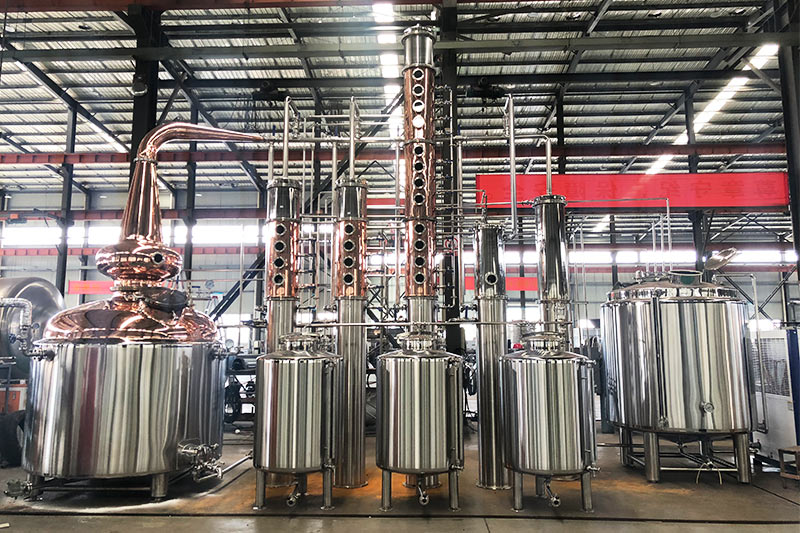
6. Does a Brewer Need Specialized Fermenters for Better Fermentation?
Yes. Fermentation is where the magic happens, transforming sweet wort into the flavorful beer we admire. The role of a fermenter is critical, and many brewers discover that specialized designs yield more consistent, better final products.
Rationale Behind High-Quality Fermenters
• Temperature Control: A fermenter with insulation or cooling jackets ensures stable conditions, which is essential for yeast health.
• Conical or Bucket: Conical fermenters let the yeast sediment settle at the bottom, simplifying collection versus a standard bucket.
• Yeast Harvesting: High-grade fermenters often include valves for drawing out slurry or sampling.
Expanding to Professional Fermenters
Those wanting to scale up from homebrewing might consider pro-level conical vessels. Such equipment, like jacketed fermenters, often seen in microbreweries, easily supports multiple yeast strains or large volumes.
7. Why Mash, Wort, and Grain Are Core Concepts for Brewing Beer?
During the brewing beer process, three fundamental concepts come up repeatedly: mash, wort, and grain. Their interplay shapes flavor, body, and final alcohol content.
The Mash Step
Mashing merges milled grain with carefully heated water to extract fermentable sugars. The temperature and duration of this stage dramatically influence your beer’s mouthfeel and style (like an IPA vs. a stout).
Wort Creation and Boiling
Once the mash is complete, the resulting sugary liquid, or wort, is separated to be boiled. During this time, you might add hops or other flavor agents. The brew kettle plays a major role here, ensuring a steady boil and allowing proteins to coagulate.
“grain brewing systematically taught me how some additions at the end of the boil can refine aromas without over-bittering the final brew.” – A home brew competitor
8. What Makes an Electric Brewing Setup Different?
An electric brewing setup replaces direct-fire stoves or gas burners with heating elements. This approach simplifies temperature management, often favored by all-grain enthusiasts and advanced brewer hobbyists.
Core Advantages
• Precision: Toggle exact temperatures for mash or boil using digital controllers.
• Energy Efficiency: Electric systems can be cost-effective and safer to operate indoors, given proper ventilation.
• Automation: Some electric rigs incorporate timers or preset recipes, beneficial for complex multi-step mashes.
Potential Downsides
• Upfront cost can be higher than a basic gas burner.
• Requires stable electric infrastructure.
• More advanced knowledge of fitting or wiring for those who want a custom solution.
9. How Do Craft Brewers Scale Up with Professional Beer Brewing Equipment?
Craft brewing has soared in popularity, prompting many home brewers to shift to micro or small-scale commercial setups. Transitioning from a 20-liter batch to producing hundreds or thousands of liters calls for robust beer brewing equipment.
Unable to render image
Navigating the Professional Sphere
• High Quality Brewing Equipment: Large brew kettle, multi-tier mash tuns, and automated pump systems ensure uniform results.
• Consistent Batch Production: Recreating your beloved home brew on a bigger scale means carefully calibrating potential keg yields, fermentation capacity, etc.
• Commercial Brewery Requirements: Licenses, building codes, and other compliance factors can’t be overlooked once you surpass the hobby threshold.
Finding a Trusted Supplier
Selecting a reputable partner simplifies your expansion process. Beer Brewing Equipment from an established manufacturer like us ensures reliability, top-tier materials, and custom solutions. We also offer Beer Brewing System designs for microbreweries or commercial breweries seeking turnkey or specialized modules.
Looking for upscaling solutions? Explore our Microbrewery Equipment or Commercial-Brewery-Equipment pages for a wide selection of professional hardware.
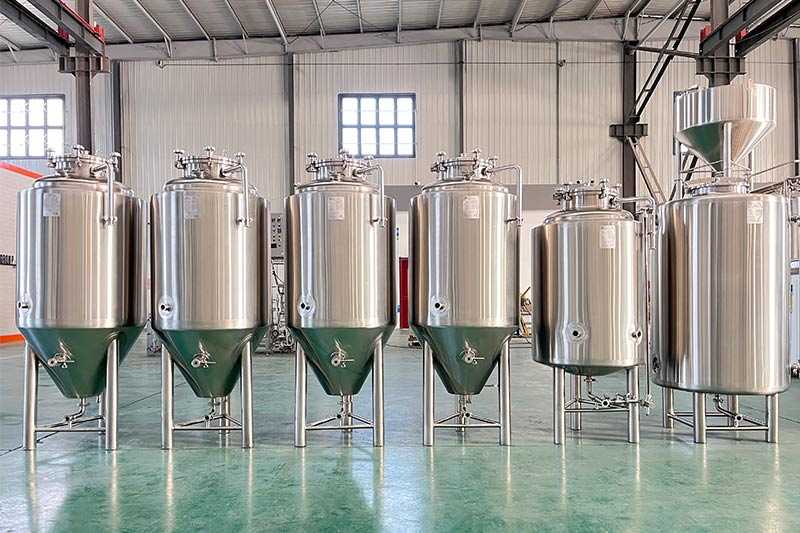
10. Which Additional Tools Improve Your Brewing Experience?
Brewing success isn’t solely about big hardware. Numerous accessories or smaller items can also have a huge impact on your beer outcome. These extras help refine clarity, flavor, or simply reduce stress during the brewing process.
Some Must-Haves
- Wort Chillers: To quickly cool your brew after boiling, preventing off-flavors or contamination.
- Yeast Starter Kits: Expand yeast populations before pitch time, ensuring robust fermentation.
- Kegging Gear: Upgrading from bottles to a keg system can save time and offer more consistent carbonation.
- Mash Paddles: Sturdy paddles help stir and maintain even temperatures in your tun.
- Equipment and Supplies upgrades: High-efficiency burners, advanced thermostats, or funnel strainers can further improve your brewing.
Built-In or Add-On Pump
If you have an advanced or electric beer brewing rig, a dedicated pump can simplify fluid transfers from one stage to another. This is especially beneficial for all-grain setups or those dealing with multi-step infusion mashes.
FAQs
Most homebrewing kits yield around 19–20 liters of beer. As you invest in a bigger brew kettle or advanced gear, you can scale up to 50 liters or more. For large volumes, consider professional designs from Nano-Brewery-Equipment or Commercial-Brewery-Equipment.
A kit can be extremely helpful. While you can piece together items individually, a designated brewing kit ensures you have the correct bucket, brew kettle, and fits for your style. This makes the process of making beer at home far simpler.
Plastic can work short-term, but stainless steel offers durability, easy sanitation, and temperature stability. Pro-level or advanced hobby setups nearly always use 304 stainless steel for improved longevity.
Some integrated all-grain options include a single vessel with compartments for mash or lauter steps. This is convenient but might be more expensive. Separate tuns can be beneficial if you want modular expansions or advanced configurations.
Extract-based approaches are easier for absolute beginners. All-grain methods provide deeper customization but involve more steps. We recommend starting with extract for quick success, then moving to all-grain once comfortable.
The term “homebrew” or “homebrewing” typically refers to the activity or the final beer itself. “Home brewing equipment,” on the other hand, denotes the physical gear—like kettles or fermenters—needed to brew.
Final Takeaways
Congratulations—you now hold some of the fundamental guidelines for diving into the thrilling craft of home brewing (or even going commercial). Here’s a short but comprehensive recap to help you manage different steps and choose top-tier gear:
- brew relies on key stages—mash, boil, fermentation—and each requires the right hardware.
- An appropriately sized brew kettle or all-grain system ensures consistent processes.
- High-grade, 304 stainless steel gear, such as a dedicated fermenter, raises cleanliness and product stability.
- beer brewing equipment that organizes your entire process—from milling grain to transferring final beer into a keg—simplifies your workflow.
- As you scale, a strong partner with high quality brewing equipment can help you achieve commercial or microbrewery outputs.
- Always keep an eye on smaller add-ons, like wort chillers or a specialized pump, to refine and improve your brewing results.
- If you’d like a deeper dive or are eager to upgrade your setup, explore Beer-Brewing-Equipment or Beer-Brewing-System for a wide selection that suits every brewer’s ambition.
In essence, the future of your brewing adventures depends largely on the choices you make now. Gather the best brewing supplies, opt for a robust brewing system, and let the journey unfold. Trust us: once you taste the difference in your first successful batch, you’ll realize that the path toward higher-tier brewing is as exciting as the final product itself.
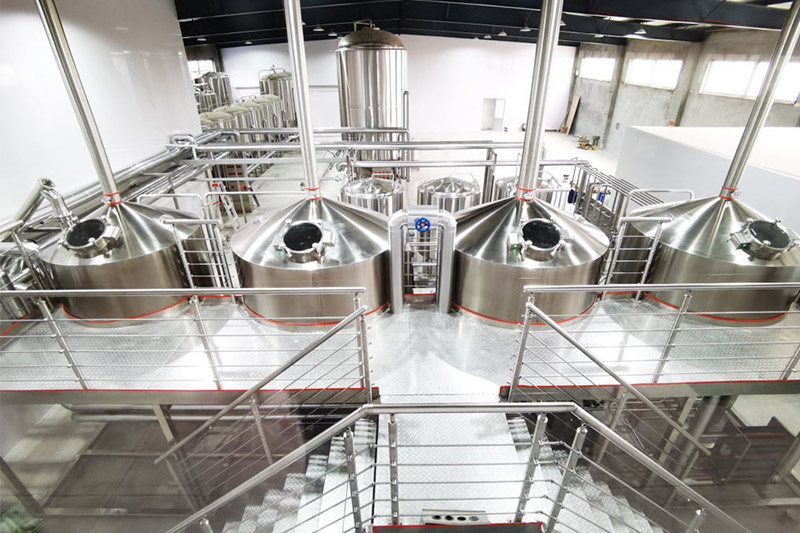
Bullet Point Summary
- Brewer personal choice: All-grain or extract approach depends on your confidence and time.
- Home brew kits come with basic items every brewer needs, from a bucket to a simple pot or brew kettle.
- Stainless steel is a top-tier material for kettle construction and fermenter outlines, offering durability and easy maintenance.
- Keep your eye on additional gear such as starter yeast cultures, pump, and wort chillers for a smoother brewing process.
- If you plan to expand or commercialize your homebrewing dreams, explore professional solutions from reputable manufacturers—like our factory—for a selection of beer brewing equipment.
- Beer is a universal language of hospitality; making your own fosters creativity, community, and knowledge.
Now that you’re equipped with facts and tips, all that remains is to gather your grain, ready your mash tun or brew kettle, and begin the journey. The world of potential flavors and the excitement of perfecting your craft awaits. Cheers to your next batch of beer and beyond!

